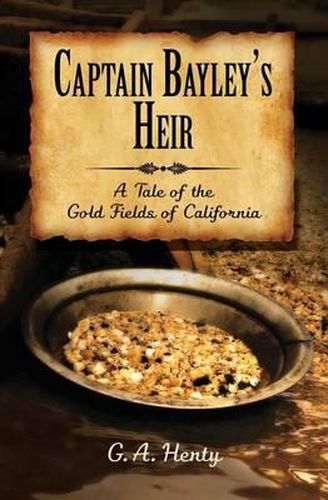Readings Newsletter
Become a Readings Member to make your shopping experience even easier.
Sign in or sign up for free!
You’re not far away from qualifying for FREE standard shipping within Australia
You’ve qualified for FREE standard shipping within Australia
The cart is loading…






George Alfred Henty (1832-1902) was born at Trumpington near Cambridge and attended Gonville and Caius College in Cambridge University. He became a war correspondent and covered the Austro-Italian War, the 1868 British invasion of Ethiopia, the Franco-Prussian War, the Ashanti Wars, the Turco-Serbian War and rebellions in Spain. When he turned to writing fiction, his young protagonists became known as Henty heroes because they exemplified the cool, calm, intelligent qualities that he identified with the public school-in the British sense of private boarding school-lads who served the Empire. He authored more than 122 novels. Henty has been accused of jingoism and racism, but defenders can find examples that contradict that image. For example, in With Clive in India, a sympathetically described Indian servant marries a white woman, and in Freedom’s Cause the hero bitterly attacks the English and the English monarchy. Yet those are exceptions. Quite simply, as a man of his times, in ideology he was an imperialist who believed in the values of the British Empire. Importantly, he was also a great storyteller, which is why his books have survived. The Henty Society in England holds meetings at places central to his life and maintains a lively web site at hentysociety.org
$9.00 standard shipping within Australia
FREE standard shipping within Australia for orders over $100.00
Express & International shipping calculated at checkout
George Alfred Henty (1832-1902) was born at Trumpington near Cambridge and attended Gonville and Caius College in Cambridge University. He became a war correspondent and covered the Austro-Italian War, the 1868 British invasion of Ethiopia, the Franco-Prussian War, the Ashanti Wars, the Turco-Serbian War and rebellions in Spain. When he turned to writing fiction, his young protagonists became known as Henty heroes because they exemplified the cool, calm, intelligent qualities that he identified with the public school-in the British sense of private boarding school-lads who served the Empire. He authored more than 122 novels. Henty has been accused of jingoism and racism, but defenders can find examples that contradict that image. For example, in With Clive in India, a sympathetically described Indian servant marries a white woman, and in Freedom’s Cause the hero bitterly attacks the English and the English monarchy. Yet those are exceptions. Quite simply, as a man of his times, in ideology he was an imperialist who believed in the values of the British Empire. Importantly, he was also a great storyteller, which is why his books have survived. The Henty Society in England holds meetings at places central to his life and maintains a lively web site at hentysociety.org